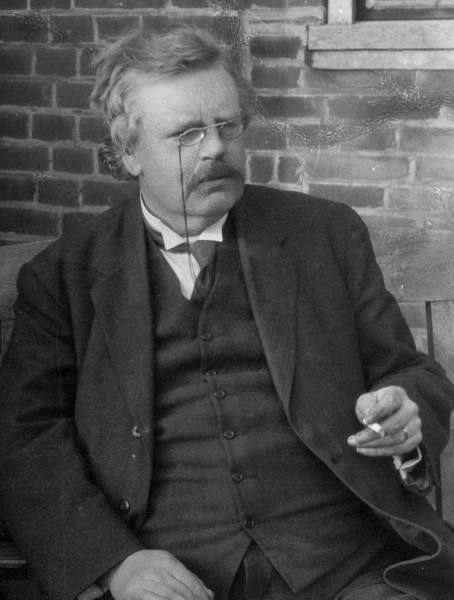Today is a special day for us in Carmel - today we celebrate the 450th anniversary of the reform of the Order by St Teresa of Avila. On this day, the 24th August 1562 the first Discalced Community was formed as the Monastery of St Joseph was opened in Avila. At the time St Teresa was unable to join the sisters, she was still in the Monastery of the Incarnation and was trying to find a way to leave without breaking her vow of obedience. In faith she left it all to the Lord and before long, Madre was walking through the doors of St Joseph's. There is a lesson for us there.
The Holy Father sent a message to the Bishop of Avila to mark the anniversary, it is a beautiful meditation on our Holy Mother Teresa and the legacy she has left us. Here is the Pope's message in full:
To my Venerable Brother
Bishop Jesús García Burillo of Avila
1. Resplendens stella: “a star shining in great splendour” (Libro de la Vida, [The Book of My Life] 32, 11). With these words the Lord encouraged St Teresa of Jesús to found the Monastery of San José in Avila. This was the beginning of the Reform of Carmel which will be celebrating its 450th anniversary next 24 August. On this happy occasion I would like to join in the rejoicing of the beloved Diocese of Avila, of the Order of Discalced Carmelites and of the People of God on pilgrimage in Spain, as well as of all those in the universal Church who have found in Teresian spirituality a sure light for men and women to attain a true renewal of their life through Christ. In love with the Lord, this illustrious woman did not want anything other than to please him in all things. Indeed, it is not those who do great things based on the excellence of their human qualities who are holy; on the contrary, holy people are those who humbly let Christ penetrate their soul and act through them, who truly allow him to play the lead in all their actions and aspirations, inspiring every project and sustaining every silence.
2. Only those who have an intense prayer life are able to let Christ lead them in this manner. The Saint of Avila says that a life of prayer consists in “being on terms of friendship with God, frequently conversing in secret with him who, we know, loves us” (Libro de la Vida 8, 5). The reform of Carmel whose anniversary fills us with inner joy was born from prayer and is inclined to prayer. By distancing herself from the Mitigated Rule in order to further a radical return to the primitive Rule, St Teresa de Jesús wished to encourage a form of life that would favour the personal encounter with the Lord, for which “we have only to find a place where we can be alone and look upon him present within us. Nor need we feel strange in the presence of so kind a Guest” (Camino de perfección [the Way of Perfection] 28, 2). The Monastery of San José came into being precisely in order that all its daughters might have the best possible conditions for speaking to God and establishing a profound and intimate relationship with him.
3. St Teresa proposed a new way of being a Carmelite in a world that was also new. The “times were dangerous” (Libro de la Vida 33, 5) and in these times, as this spiritual teacher said, “the friends of God should be strong, in order that they may support the weak” (ibid., 15, 5). And she eloquently insists: “the world is on fire. Men try to condemn Christ once again, as it were, for they bring a thousand false witnesses against him. They would raze his Church to the ground.... No, my sisters, this is no time to treat with God for things of little importance" (Camino de perfección, 1, 5). Does not this most luminous and challenging reflection made by the holy mystic more than four centuries ago seem familiar to us in the situation in which we are living?
The ultimate aim of the Teresian Reform and of the creation of new monasteries in the midst of a world devoid of spiritual values was to strengthen apostolic work with prayer; and to propose an evangelical lifestyle that might serve as a model to those in quest of a way of perfection, based on the conviction that every authentic personal and ecclesial reform passes through reproducing, ever more faithfully, the “form” of Christ (cf. Gal 4:19) within us. The Saint and her daughters strove to do exactly this and this was the exact commitment of her Carmelite sons who endeavoured solely to “advance in virtue” (Libro de la vida, 31, 18). In this regard Teresa writes: “He [Our Lord] prizes one soul which of his mercy we have gained for him by our prayer and labour more than all the service we may render him” (Libro de las Fundaciones [The Book of the Foundations] 1, 7). In the face of forgetfulness of God the Holy Doctor encourages prayerful communities that protect with their fervour those who proclaim Christ’s name everywhere, so that they may pray for the Church’s needs and bring the cry of all the peoples to the Saviour’s heart.
4. Today too, as in the 16th century and also among rapid changes, trusting prayer must be the soul of the apostolate so that the redemptive message of Jesus Christ rings out with deep clarity and vigorous dynamism. It is urgently necessary that the Word of life be harmoniously vibrant in souls, with resonant and attractive tones.
Teresa of Avila’s example is a great help to us in this exciting task. We can say that in her time the Saint evangelized without mincing her words, with unfailing ardour, with methods foreign to inertia and with expressions haloed with light. Her example keeps all its freshness at the crossroads of our time. It is here that we feel the urgent need for the baptized to renew their hearts through personal prayer which, in accordance with the dictates of the Mystic of Avila, is also centred on contemplation of the Most Holy Humanity of Christ as the only way on which to find God’s glory (cf. Libro de la Vida, 22, 1; Las Moradas [Interior Castle] 6, 7). Thus they will be able to form authentic families which discover in the Gospel the fire of their hearths; lively and united Christian communities, cemented on Christ as their corner-stone and which thirst after a life of generous and brotherly service. It should also be hoped that ceaseless prayer will foster priority attention to the vocations ministry, emphasizing in particular the beauty of the consecrated life which, as a treasure of the Church and an outpouring of graces, must be duly accompanied in both its active and contemplative dimensions.
The power of Christ will likewise lead to the multiplication of projects to enable the People of God to recover its strength in the only possible way: by making room within us for the sentiments of the Lord Jesus (cf. Phil 2:5), seeking in every circumstance a radical experience of his Gospel. This means, first of all, allowing the Holy Spirit to make us friends of the Teacher and to conform us to him. It also means accepting his mandates in all things and adopting such criteria as humility in behaviour, the renunciation of the superfluous and giving no offence to others or proceeding with simplicity and a docile heart. Those who surround us will thus perceive the joy that is born from our adherence to the Lord and see that we put nothing before his love, being ever ready to account for our hope (cf. 1 Pet 3:15) and, like Teresa of Jesus, living in filial obedience to our Holy Mother, the Church.
5. Today, this most illustrious daughter of the Diocese of Avila invites us to this radicalism and faithfulness. Accepting her beautiful legacy at this moment in history, the Pope asks all the members of this particular Church, and especially youth, to take seriously the common vocation to holiness. Following in the footsteps of Teresa of Jesus, allow me to say to all who have their future before them: may you too, aspire to belong totally to Jesus, only to Jesus and always to Jesus. Do not be afraid to say to Our Lord, as she did, “I am yours; I was born for you, what do you want to do with me?” (Poem 2). And I ask him to obtain that you may also be able to respond to his call, illuminated by divine grace with “determined resolve” in order to offer “that little” which is in you, trusting in the fact that God never abandons those who leave everything for his glory (cf. Camino di perfección 21, 2; 1, 2).
6. St Teresa knew how to honour with deep devotion the Most Holy Virgin, whom she invoked with the sweet name of Carmel. I place under her motherly protection the apostolic aspiration of the Church of Avila so that rejuvenated by the Holy Spirit she may find appropriate ways for proclaiming the Gospel with enthusiasm and courage. May Mary, Star of Evangelization, and her chaste spouse, St Joseph, intercede so that this “star” which the Lord set alight in the universe of the Church with the Teresian Reform, may continue to shine with the great splendour of the love and truth of Christ for all humankind. With this wish, Venerable Brother in the Episcopate, I send you this message. I ask you to make it known to the flock entrusted to your pastoral care and, especially, to the beloved Discalced Carmelites of the Convent of San José in Avila so that they may perpetuate in time the spirit of their Foundress. I am ever grateful to them for their fervent prayers for the Successor of Peter. To them, to you and to all the faithful of Avila I impart the Apostolic Blessing as a pledge of abundant heavenly favours.
From the Vatican, 16 July 2012
BENEDICTUS PP. XVI
Our Father General has also issued a message which is very inspiring:
you can read it here. Fr Saverio has a deep love for Secular Carmelites and is trying to remind the Order that we are not only members of the Order, but an important part of it (
he wrote a letter on the issue). Following Vatican II, while there was great emphasis on the vocation of the laity, Third Orders were a problem - some even said that they were not part of their Orders, but associations of laity. This is an issue that still needs to be addressed. At the moment our Secular and Third Order fall under the Council for the Laity, but we are consecrated people - consecrated by profession of the evangelical counsels and we are members of Orders. I personally believe Third and Secular Orders should come under the Congregation for Institues of Consecrated Life and Societies of Apostolic Life.
That said, today is a great feast day! As you probably know by now we Carmelites love our feast days! So we'll raise a toast - we're 450 today! I think some of us look good for our age.






